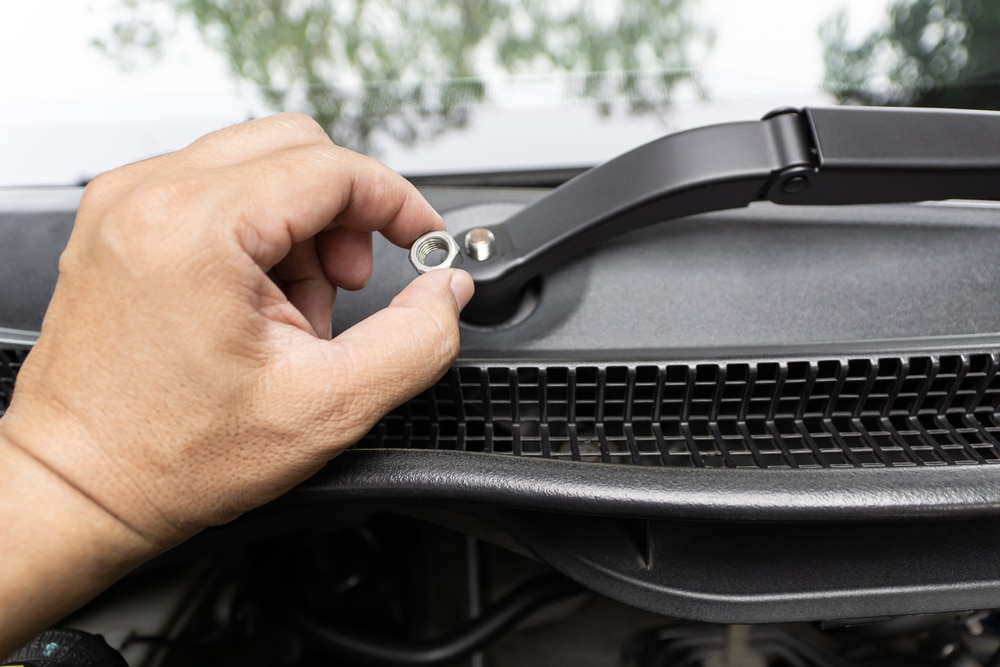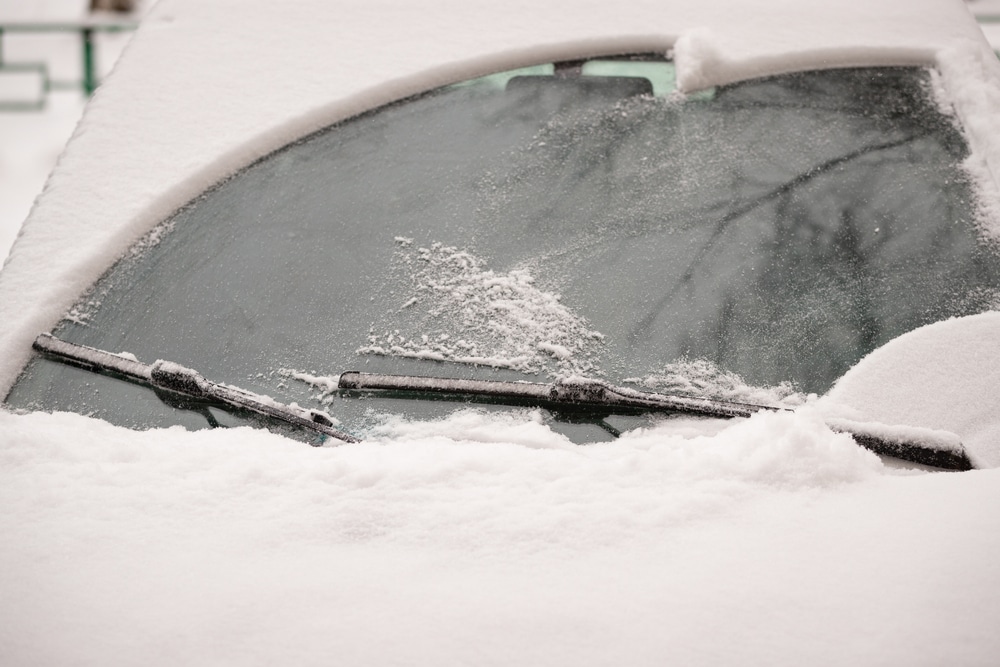
If you find yourself in a situation where only one of your car or truck’s windshield wipers is working, there’s a lot you can do to get it fixed at home.
We know that when only one windshield wiper is working, the windshield wiper motor is still functional. So we don’t need to check the windshield wiper fuse or the electrical motor.
One windshield wiper not working is often caused when the wipers are turned on when the rubber edges are frozen to the windshield by snow and ice. It causes the linkage in the cowl to break or the wiper arm splines to strip out.
The good news is that when only one windshield wiper isn’t working, it can only be caused by a few problems in the wiper system. The bad news is that while diagnosing one windshield wiper not working is relatively easy; the repair can sometimes be a challenge.
If both your windshield wipers stopped working, this is not the article for you.
1. Loose Pivot Nut

A pivot nut keeps each wiper arm connected to its respective wiper transmission stem. They’re big (usually 15mm+). A loose wiper pivot nut can keep a wiper blade from moving if it has worked itself loose. Verify the nut is still tight. If it’s loose, snug it down and see if that gets your wiper moving.
If tightening the pivot nut did get the wiper moving, be aware that the splines are probably at least a little stripped, and they might strip all the way out on something like heavy wet snow. If that happens, you’ll need to replace the transmission.
2. Stripped Splines (Wiper Arm)
It’s easy to determine if a wiper’s arms have been stripped out. Look at the nut where the broken wiper bolts to the vehicle. Now move the wiper up and down the windshield. If the nut stays put, the threads have worn out. If the nut moves with the wiper, there is an issue with the arm that connects the wiper.
With the wipers parked (turned off in the resting position), unbolt the wiper arm and inspect the splines.
You’ll need to look at the wiper where it slides onto the splines, are the splines still intact, or are they all chewed up? If they are damaged, you’ll need to get a new wiper arm, which is a much easier repair than replacing the transmission.
If they look all chewed up, you’ll need to replace them.
3. Stripped Splines (Wiper Transmission)

A wiper’s transmission transfers the energy created by the wiper motor to the wiper arms. With the wiper arm off, take a look at the splines. Turn on the wipers to verify that the transmission is moving the stem that the wiper arm bolts to. If it’s not moving, jump down to the next section.
If the stem is chewed up to the point that the wiper arm can’t get a grip, you’ll need to replace the wiper transmission. This involves getting under the cowl and is doable for most shade tree mechanics with a little experience.
4. Stem Not Turning (Linkage Issue)
There is a linkage that connects each wiper arm to the wiper motor. If the stem isn’t moving, you’ll need to determine where the linkage has broken.
Once you get to the wiper transmission, put the wiper arm back on and move it up and down, and you’ll see exactly where the linkage failed. Sometimes you can repair it, while other times, you’ll need a whole new linkage.
